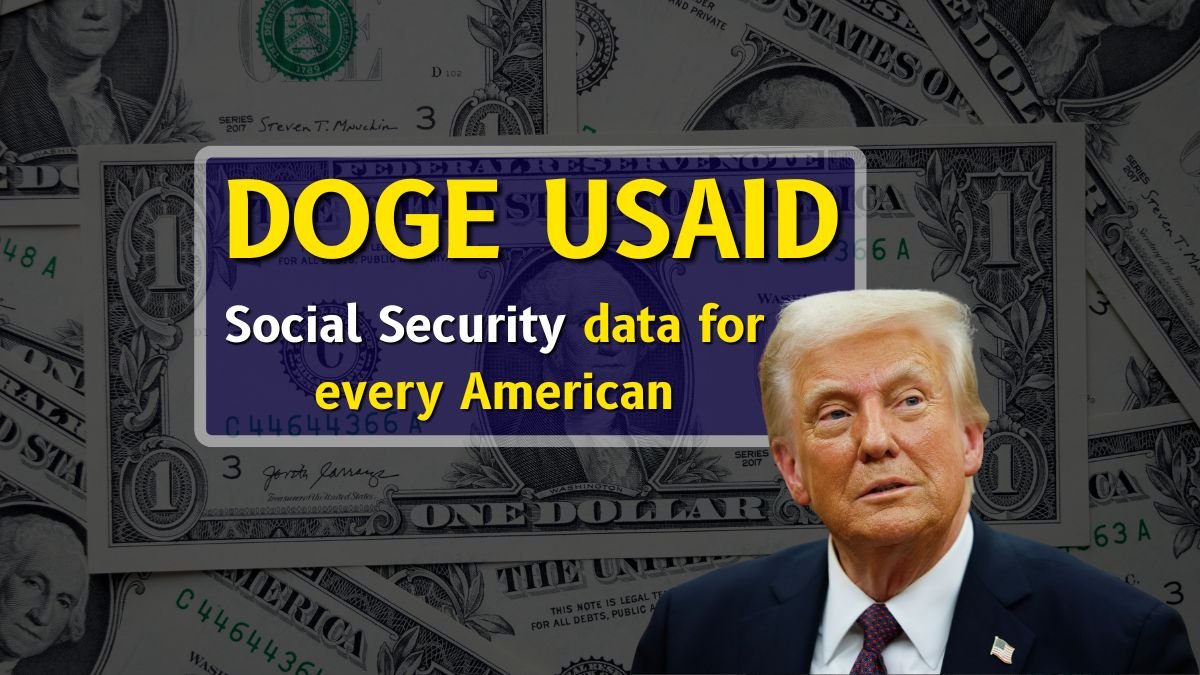Right now, something huge is unfolding in the U.S. government that could affect every American citizen—especially when it comes to your personal data and privacy. And it’s happening quietly, without much public explanation.
What’s Happening With Your Social Security Data?
A controversial unit of the U.S. government called DOGE (Department of Government Efficiency)—has just been granted access to Social Security data for every American. This includes:
- Your job history
- Where you’ve lived
- How much you’ve earned
And it’s not just temporary. A recent Supreme Court ruling could allow this access to continue indefinitely, even though the issue is still being challenged in court.
Sounds scary? That’s because it is.
How Did We Get Here?
This all started when DOGE originally a fast-tracked White House team connected to Elon Musk was told by a lower court it couldn’t access Social Security data due to privacy laws. Specifically, the Privacy Act protects against government overreach by limiting who can access personal records.
But instead of waiting for a full legal review, the Trump administration took it to the Supreme Court—and won on an emergency basis.
The catch? The court didn’t even fully explain why.
Why This Ruling Feels So Dangerous
Let’s break this down.
The Supreme Court didn’t decide whether DOGE should have access. It simply said DOGE can, for now. But the bigger concern is what this signals:
That government departments might be allowed to access and share your most sensitive personal data—across agencies without clear limits.
What happens when your Social Security info lands in the hands of:
- The IRS
- The Department of Justice
- The Department of Health and Human Services
- Any government official who wants to “look into” your life?
This isn’t just about privacy. It’s about control.
What Does This Mean for You?
Let’s be honest. Most of us are just trying to get by—pay our bills, take care of our families, build a future. The last thing we need is to worry about whether our own government is using our information against us.
But that’s what could happen if privacy laws keep being pushed aside.
Your work history, your income, your address records—these can all be used to make assumptions, track movements, or worse… target people based on political views or personal choices.
And if this data is shared freely between agencies, there’s almost no limit to how it could be used.
So… Can the Government Really Do That?
Right now, under the Privacy Act, personal data is only supposed to be shared within the government if someone has a “need to know” for official duties.
But that definition is being stretched. And if the Supreme Court eventually rules that DOGE—or any future agency—has a broad “need” for your records, the protections in place could collapse completely.
Even more alarming? Some believe the court might decide that the Privacy Act doesn’t even apply to government agencies sharing info with each other.
That would be a game-changer—in the worst way.
Why You Should Care Even If You’ve Got Nothing to Hide
You might think, “I’m not doing anything wrong, so why should I worry?”
Because privacy isn’t about hiding things. It’s about freedom.
Freedom to move. Freedom to speak. Freedom to live without fear of being watched, tracked, or targeted for things like:
- Protesting
- Donating to a cause
- Changing jobs
- Needing government help
This kind of data access could be used for discrimination, control, or political retaliation. That’s not the kind of future anyone wants.
FAQs
1. What is DOGE and why is it accessing Social Security data?
DOGE is a federal agency created to “improve efficiency,” originally backed by Elon Musk. It’s now being granted access to private data for unclear purposes.
2. What kind of Social Security data is involved?
Everything from your job history and wages to your addresses and employment records.
3. Doesn’t the Privacy Act protect me?
Yes, but that protection is being challenged. If the Supreme Court eventually weakens or overturns it, your data could be more exposed.
